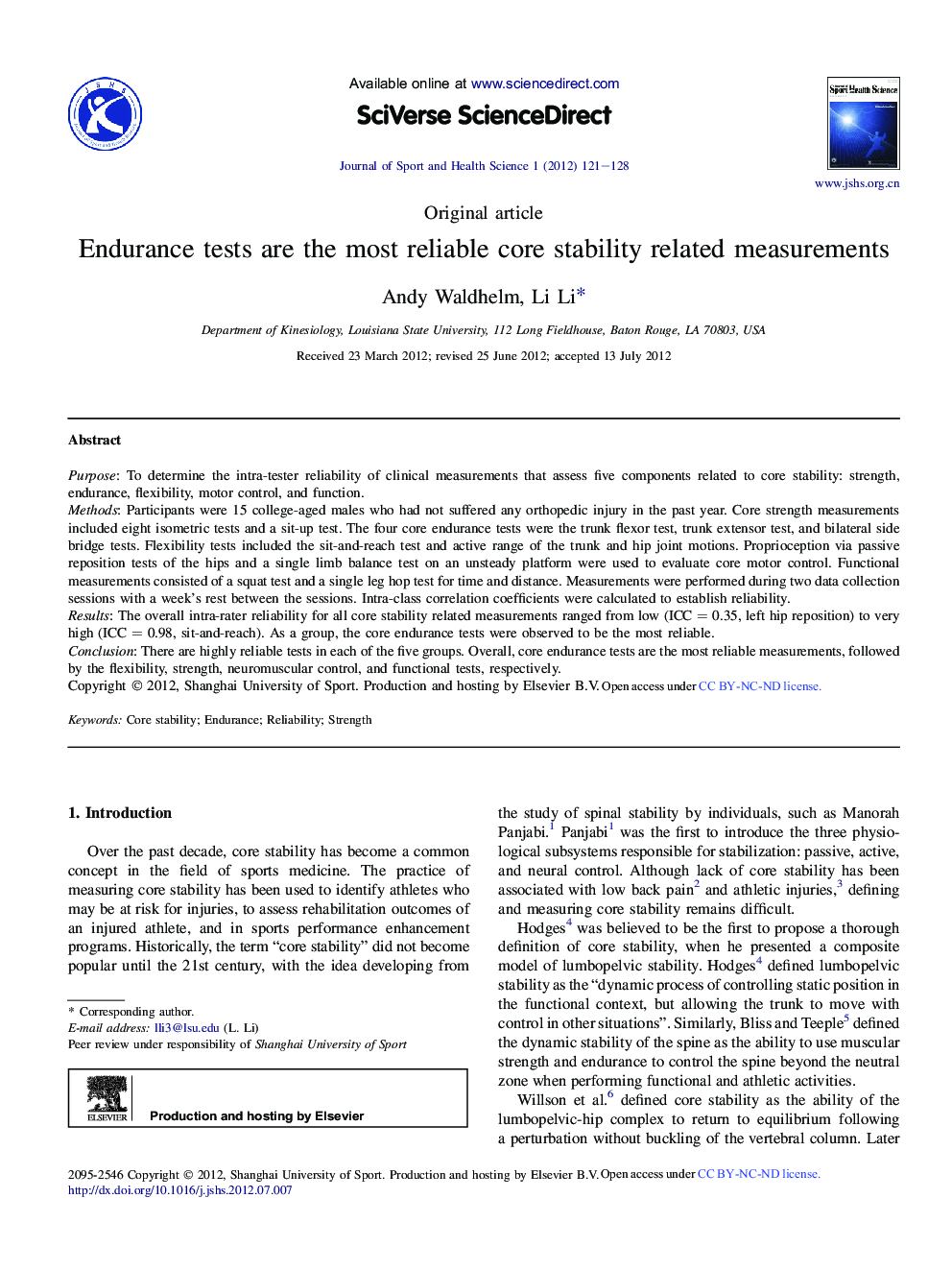| Article ID | Journal | Published Year | Pages | File Type |
|---|---|---|---|---|
| 1084311 | Journal of Sport and Health Science | 2012 | 8 Pages |
PurposeTo determine the intra-tester reliability of clinical measurements that assess five components related to core stability: strength, endurance, flexibility, motor control, and function.MethodsParticipants were 15 college-aged males who had not suffered any orthopedic injury in the past year. Core strength measurements included eight isometric tests and a sit-up test. The four core endurance tests were the trunk flexor test, trunk extensor test, and bilateral side bridge tests. Flexibility tests included the sit-and-reach test and active range of the trunk and hip joint motions. Proprioception via passive reposition tests of the hips and a single limb balance test on an unsteady platform were used to evaluate core motor control. Functional measurements consisted of a squat test and a single leg hop test for time and distance. Measurements were performed during two data collection sessions with a week's rest between the sessions. Intra-class correlation coefficients were calculated to establish reliability.ResultsThe overall intra-rater reliability for all core stability related measurements ranged from low (ICC = 0.35, left hip reposition) to very high (ICC = 0.98, sit-and-reach). As a group, the core endurance tests were observed to be the most reliable.ConclusionThere are highly reliable tests in each of the five groups. Overall, core endurance tests are the most reliable measurements, followed by the flexibility, strength, neuromuscular control, and functional tests, respectively.
